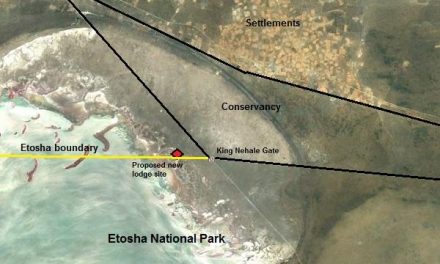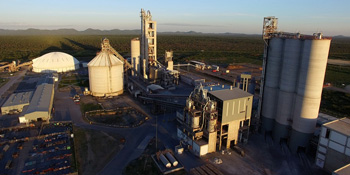
Detail thin on fuel import mandate
After announcing its intention to restore its fuel import mandate, the National Petroleum Corporation of Namibia is not very forthcoming about the strategy that would guide the restoration of this crucial downstream function.
In an attempt to understand the dynamics that would guide the restoration, the Economist contacted NAMCOR’s Executive for Corporate Communications, Utaara Hoveka for clarity on the matter. Responding in writing, he said, “NAMCOR is currently working on getting its mandate back to import 50% of the country’s requirements. We are carefully assessing the various aspects that need to be in place, to ensure smooth operations when the mandate is returned.”
Restoring NAMCOR’s 50% import mandate will effectively reserve half of the downstream petroleum market for the state-owned operator.
NAMCOR, through its board chairman, Johannes !Gawaxab recently announced that the restoration of its fuel mandate was on the cards. NAMCOR could not provide a clear guideline on when it would ideally restore the fuel mandate, how and from where it would procure the required fuel estimated to be 500 million litres annually, whether it would affect pricing nor could it provide detail on what it would mean for existing fuel suppliers, Vivo Energy Namibia, Engen Namibia, Puma Energy and Total Namibia.
Recently, Engen announced its plans and intention to enhance its regional fuel supply with a flurry of investments which would ultimately total N$150 million according to Drikus Kotze, Engen General Manager: International Business Division. This includes the refurbishment of its Walvis Bay Depot, the construction of the Grootfontein Fuel Depot currently underway while the Ondangwa Fuel Depot is expected to come online in 2016. Said Kotze in a press statement recently, “The Grootfontein facility will supply the whole of northern Namibia until Ondangwa comes online in 2016.”
Motivating NAMCOR’s position on the restoration of the import mandate, Hoveka re-iterated, “the return of the mandate is of particular importance to NAMCOR and the country at large. Like any other national oil company, NAMCOR is responsible to ensure that there is security of supply of petroleum products. In a nutshell, this means we have a statutory mandate to ensure that at no point does the country run out of fuel.”
He added, “we are confident that we can effectively execute on this mandate as such a strategic resource can not entirely be left in the hands of the private sector. The government has to ensure that its interests are sufficiently taken care of, and the state-owned entities should be in a position to fulfil this role.”










































